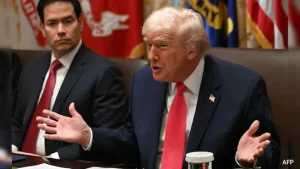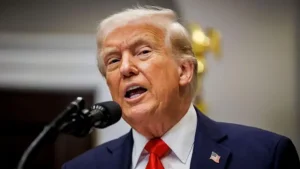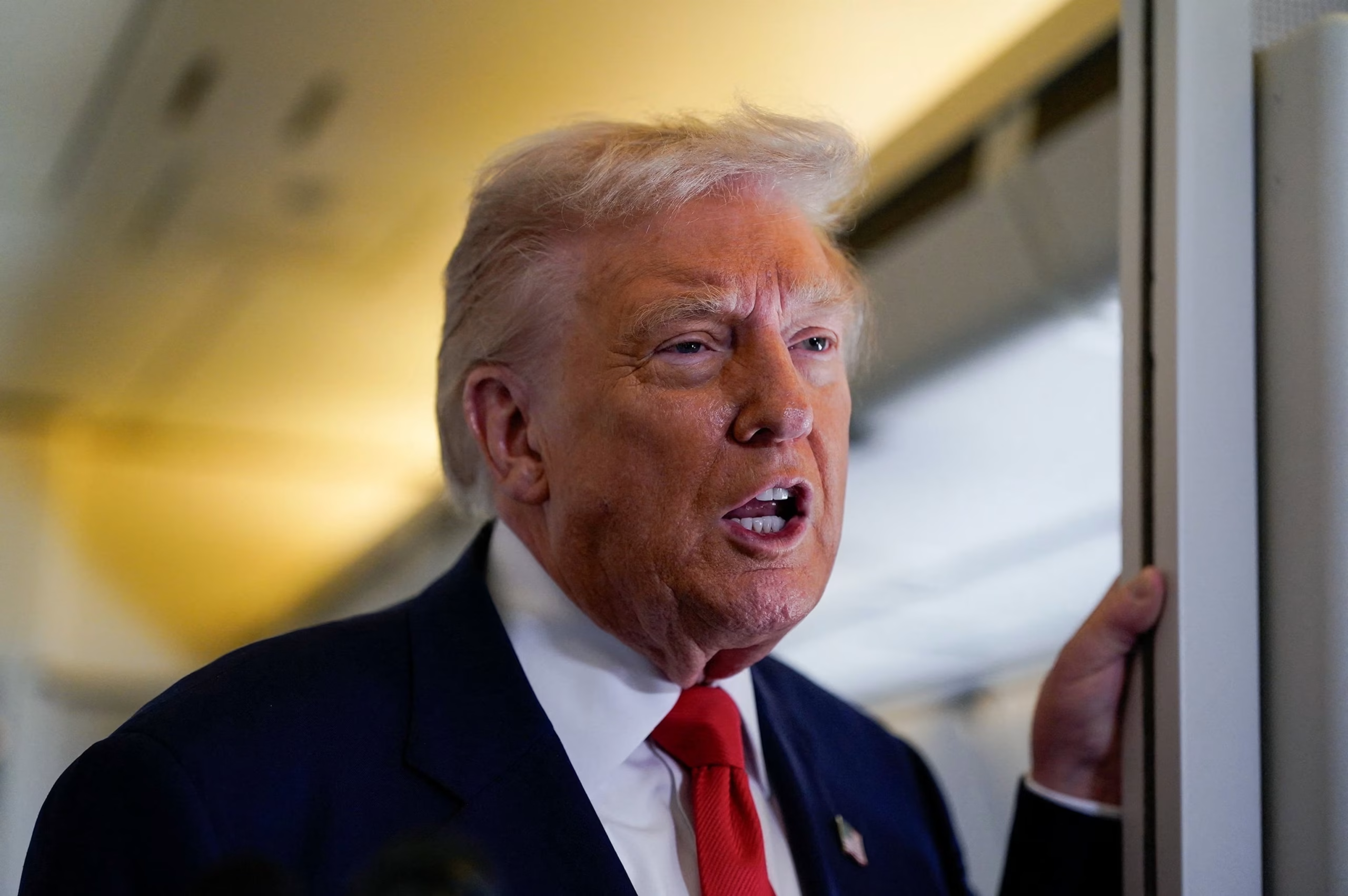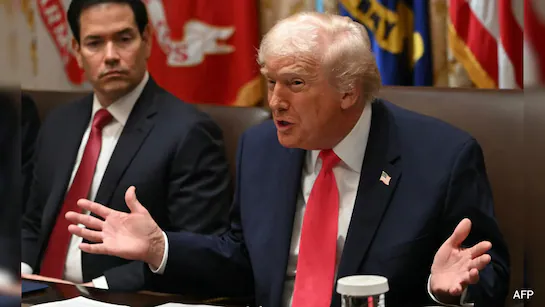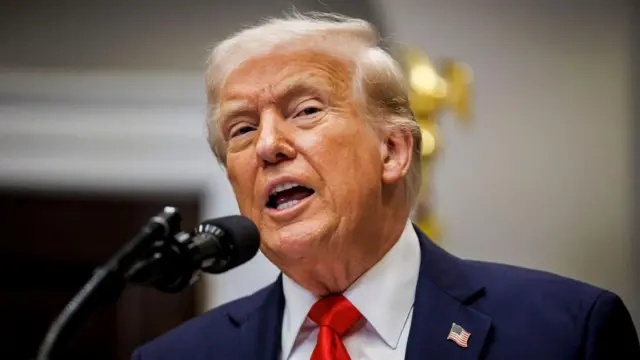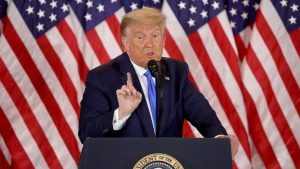In a move without precedent in the 78-year history of the Fulbright Program, all twelve members of the Fulbright Foreign Scholarship Board resigned simultaneously, citing deep concerns over President Donald Trump’s newly intensified crackdown on the foreign student system.
The Fulbright Board, created by Congress in 1946 to preserve academic freedom and oversee one of the country’s most celebrated international exchange programs, has now effectively collapsed in protest.
In a blistering resignation letter released on Wednesday, the members said they were unwilling to “endorse unprecedented actions that we believe are impermissible under the law, compromise U.S. national interests and integrity, and undermine the mission and mandates Congress established for the Fulbright program nearly 80 years ago.”
The collective resignation marks one of the most dramatic confrontations to date between the Trump administration and the U.S. academic establishment.
The Board’s Charge: Trump Went ‘Too Far’
According to the letter, board members say they have continued to follow the Fulbright-Hays Act faithfully through Democratic and Republican administrations alike. They emphasized that Congress explicitly designed the program to be non-political, independent, and preserved from ideological influence.
But this time, they claim, the White House stepped far beyond what the law allows.
The Board alleges that the Trump administration:
-
Denied Fulbright awards to a large number of individuals already selected for the 2025–2026 academic year
-
Launched an unauthorized “secondary review” of approximately 1,200 additional recipients
-
Signaled it may reject even more scholars on national security grounds
The Board said these actions “not only contradict the statute but are antithetical to the Fulbright mission and the values, including free speech and academic freedom, that Congress specified.”
They also accused the administration of usurping the Board’s statutory authority, effectively pushing them aside in decisions they are legally empowered to make.
“We have raised these legal issues and our strong objections with senior administration officials on multiple occasions, including in writing,” the Board said, noting their warnings had been repeatedly ignored.
What Triggered the Clash? National Security Concerns Surge
While the Board insists its objections are rooted in law and program integrity, Trump officials tell a different story.
They argue the Fulbright program has become increasingly vulnerable to foreign infiltration, particularly from the Chinese Communist Party, and that ignoring the threat would be irresponsible.
In recent months, a string of disturbing cases has heightened concern:
Case 1: Chinese Scholar Caught Smuggling Biological Material
Just weeks ago, a Chinese national named Chengxuan Han was arrested after allegedly smuggling biological materials from a science and technology university in Wuhan, China, into a University of Michigan laboratory.
Federal prosecutors said Han’s actions fit a disturbing pattern.
U.S. Attorney Jerome Gorgon Jr. said,
“The alleged smuggling of biological materials by this alien… is part of an alarming pattern that threatens our security.”
FBI Special Agent Cheyvoryea Gibson added,
“The alleged smuggling… is a direct threat to public safety and national security.”
Han admitted in court that the packages contained nematode growth medium and plasmids—genetic tools frequently used in research.
Case 2: Stanford Review Exposes Network of Chinese Influence
Last month, the Stanford Review published a bombshell report alleging:
-
transnational repression on campus
-
more than $64 million in Chinese government-linked funding
-
a “pervasive culture of silence” around Beijing’s influence
The story sent shockwaves through major research universities across the country.
Trump Administration: Fulbright Has Become a Security Risk
Trump officials argue that the Fulbright system, while historically valuable, has become a direct target for exploitation — with scholarship pathways being used by hostile nations to infiltrate sensitive research environments.
From the administration’s perspective, the Board’s outrage reflects a refusal to adapt to the new geopolitical threat landscape.
Privately, Trump advisers say that Fulbright leadership has “turned a blind eye” to abuses for years.
One senior administration official, speaking on background, said:
“You cannot allow foreign governments to use our own universities as espionage hubs and pretend everything is fine because it was fine in 1970.”
The Board Says the Administration Is ‘Degrading, Dismantling’ the Program
But the Fulbright Board frames the situation very differently.
They say the Trump administration is trying to reshape Fulbright into an ideological screening program, where political loyalty and national origin weigh more than academic merit or international cooperation.
Their warning was stark:
“It is our sincere hope that Congress, the courts, and future Fulbright Boards will prevent the administration’s efforts to degrade, dismantle, or even eliminate one of our nation’s most respected and valuable programs.”
The Board also said politicizing Fulbright undermines American soft power abroad and could fracture decades of international goodwill.
A Once-Storied Program Now in Limbo
The mass resignation leaves the Fulbright Program in an unprecedented state of uncertainty.
Without a functioning Board, it cannot:
-
Validate scholarship selections
-
Approve critical program decisions
-
Issue official Fulbright awards
Legally, the Board must be bipartisan, independent, and fully seated to operate. As of now, it cannot meet those requirements.
Universities, diplomatic partners, and thousands of applicants worldwide are now waiting to see how the administration responds — whether it appoints a new board swiftly, restructures the program entirely, or sidelines it.
The Political Fallout Will Be Immediate
This resignation comes amid growing tension over Trump’s broader foreign student reforms — a crackdown on:
-
fraudulent student visas
-
foreign research espionage
-
universities accepting unreported foreign funding
-
foreign nationals working in sensitive U.S. labs
Democrats describe the reforms as xenophobic and destructive.
Republicans argue they are long overdue.
The Fulbright Board’s mass exit adds fuel to the political fire, giving Democrats a powerful narrative against Trump while simultaneously reinforcing Republican claims that academia has become dangerously naive about foreign threats.
Is Fulbright’s Future in Danger?
That depends on what the administration does next.
If Trump decides to replace the board with members who support a national-security-first posture, the program could undergo the largest restructuring in its history.
If Congress intervenes — as the Board hopes — a legal battle could follow.
If nothing happens quickly, the Fulbright Program could become paralyzed for the 2025–2026 academic cycle, affecting more than 2,000 U.S. and foreign scholars.
Conclusion
The complete resignation of the Fulbright Foreign Scholarship Board is one of the most dramatic institutional protests of the Trump era.
The Board says the administration is dismantling a cherished American institution.
The administration argues it is finally protecting American research and national security.
One thing is certain: the Fulbright Program — a symbol of global cooperation for nearly eight decades — now faces its most uncertain future since its founding.

Emily Johnson is a critically acclaimed essayist and novelist known for her thought-provoking works centered on feminism, women’s rights, and modern relationships. Born and raised in Portland, Oregon, Emily grew up with a deep love of books, often spending her afternoons at her local library. She went on to study literature and gender studies at UCLA, where she became deeply involved in activism and began publishing essays in campus journals. Her debut essay collection, Voices Unbound, struck a chord with readers nationwide for its fearless exploration of gender dynamics, identity, and the challenges faced by women in contemporary society. Emily later transitioned into fiction, writing novels that balance compelling storytelling with social commentary. Her protagonists are often strong, multidimensional women navigating love, ambition, and the struggles of everyday life, making her a favorite among readers who crave authentic, relatable narratives. Critics praise her ability to merge personal intimacy with universal themes. Off the page, Emily is an advocate for women in publishing, leading workshops that encourage young female writers to embrace their voices. She lives in Seattle with her partner and two rescue cats, where she continues to write, teach, and inspire a new generation of storytellers.
